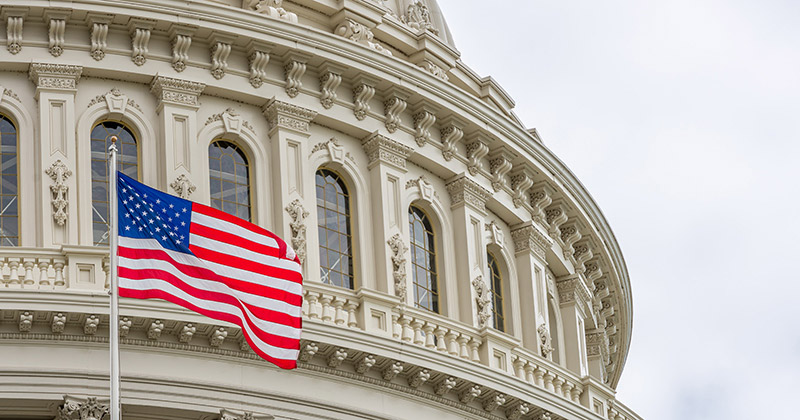


Impact on democracy
Photo by Adobe Stock January 29, 2021
Political science panelists explore attack on U.S. Capitol
Joanne Miller, a political psychologist at the University of Delaware, began her discussion of the Jan. 6 attack on the U.S. Capitol by Donald Trump supporters with two simple questions and their only superficially simple answers.
“Why did so many people come to Washington on Jan. 6?” asked Miller, associate professor of political science. “And why do so many people believe the election was stolen?” The simple answer: Because then-President Trump told them to come and to have the results of the election, which he falsely and repeatedly claimed to have won, overturned.
“But,” Miller said, “there’s more to it.”
Speaking during the first of a two-part panel discussion of the events of Jan. 6, sponsored by the Department of Political Science and International Relations, Miller explained some of the research about why people believe conspiracy theories, such as the idea that the presidential election was rigged to make Joe Biden seem to be the winner. Supporters of other conspiracy theories, including those promoted by the group QAnon, also joined in the attack on the Capitol.
In general, Miller said, when people feel out of control of their lives and events, they naturally look for explanations to understand what is happening in the world. That search for answers can lead them to see connections where none exist, but the belief that they have found an explanation allows them to feel in control as they spread the word and take action.
In the current situation, people’s uncertainty has been heightened by the COVID pandemic, and the isolation resulting from it has prompted more spread of conspiracy theories through social media, Miller said.
Another panelist, Danna Young, associate professor of communication, focused on social identity theory—the ways we define ourselves and the groups with which we identify—as she discussed why the false belief about the presidential election is held by so many people. America has become increasingly polarized, not just politically but also emotionally, she said: “We tend to hate the other side more than ever.”
At the same time, Young noted that people associate more often with others who share their views and characteristics, and the growth of partisan media outlets means that they often hear only opinions that reflect their own perspective. These “echo chambers” make their strongly held beliefs that much more entrenched, she said.
The panel also discussed some of the constitutional issues raised by the Jan. 6 riot. Those are complex, said Wayne Batchis, associate professor of political science. He reminded the audience that the First Amendment applies to the government in free-speech cases, not to private entities like social media companies, who are able to bar certain topics and users.
And, he said, although the First Amendment is clear about freedom of speech, court cases have established a line between that freedom and violent behavior, “and the line is not an easy one to draw.” A criminal charge of inciting a riot is very difficult to prove, with court rulings setting a high bar, Batchis said. However, he pointed out that impeachment is a different matter.
The panelists concluded by taking questions from the online audience, including one from a middle school teacher who wondered how to talk about Jan. 6 to the next generation.
“I recommend a ‘What if I am wrong?’ [approach],” Young said, advocating for students to learn not just how to argue a point of view but also how to consider why others believe differently and to think about what evidence would be needed to change their own or someone else’s mind on an issue.
The panel was moderated by David Redlawsk, James R. Soles Professor of Political Science and chair of the department.
Feb. 1: The International Perspective
A second panel discussion exploring the international views and implications of the events of Jan. 6 will again feature experts from the UD faculty.
The online event will be held from noon to 1:30 p.m., Monday, Feb. 1, and include the opportunity for audience members to ask questions. The session is free, but registration is required at this website.
Panelists, all from the Department of Political Science and International Relations, will be Prof. Muqtedar Khan and Associate Profs. Julio Carrión, Dan Green, Daniel Kinderman and Claire Rasmussen. The discussion will be moderated by Prof. Stuart Kaufman.
Contact Us
Have a UDaily story idea?
Contact us at ocm@udel.edu
Members of the press
Contact us at mediarelations@udel.edu or visit the Media Relations website

